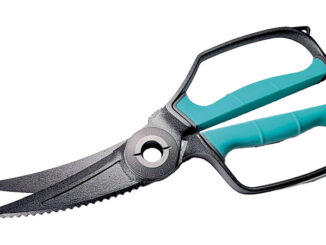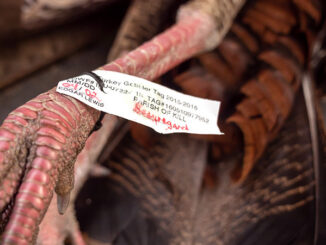
Shallow duck ponds are favorite haunts of redfish, and the area north of Cocodrie is chock-full of potential. Here’s one guide’s tips for finding success.
If you fish the Golden Meadow area, you’re probably very familiar with a water body named Gasoline Bay, or Grand Bay on some maps. It’s southeast of Catfish Lake, and rivals Golden Meadow’s most-popular water body in size. Hughie Bell and a couple of friends were fishing there last month when they were approached by individuals in two other boats who told Bell and company that they had to leave the bay because it was part of a private lease.
Not one to be bullied, Bell politely declined, and told the alleged lessees that he would let the Lafourche Parish Water Patrol determine whether or not he had to leave. Bell called the sheriff’s office, and two hours later, the water patrol showed up.
What happened next shocked Bell, a life-long Louisiana angler.
“The guys presented the water patrol with a map that showed they had a crab lease in the area, including the bay, so the water patrol told me that I had the right to cross the bay, but I couldn’t stay and fish it,” Bell said. “They made me leave the bay.”
Gasoline Bay has numerous cuts providing access to it from natural waterways, so it’s quite likely that Bell was well within his legal rights to stay and fish the bay.
But how is a water patrol officer supposed to know? It would take the experts at the State Land Office some time to determine with any certainty whether or not Gasoline Bay is a public water body. A water patrol officer can’t be expected to make that determination in mere minutes.
Sheriff’s deputies are trained to diffuse volatile situations, so 99 times out of 100, the deputies are simply going to ask the angler to leave his fishing hole.
It may be the expedient thing to do, but it’s not right. Anglers across the state are being denied access to tidal waters that belong to all of us just as much as the air we breathe. These anglers can take their cases to court, and they may win the right to fish certain locations, but really, who has the time and money to fight a protracted legal battle to gain access to one fishing hole? That’s what so-called landowners and so-called lessees are counting on.
The way the law is currently written, the entire coastal zone of Louisiana is gray. A new law needs to be written that paints the coast in two colors — black and white. It would be a simple law to write: If the water in any canal, river, lake, bay, bayou, pond, etc., is influenced by the tides, it is open to the public. Period.
But, of course, nothing in government is simple. Politicians are elected by the people, but it’s not the people they’re indebted to. It’s the money. And from where does the money come? Landowners.
Gov. Kathleen Blanco isn’t getting anywhere near this issue.
“Right now, my administration is not planning to be deeply involved in the process,” she told Sportsman staffer Andy Crawford.
The Coastal Conservation Association, Louisiana’s largest saltwater advocacy group, isn’t going to help either.
“It’s not our issue,” Executive Director Jeff Angers said.
What? Louisiana anglers are being locked out of the coastal marshes like serfs outside of the castle, and it’s not their issue? What issue could possibly be more important to CCA than the rights of anglers to access tidal waters?
I have a guess why CCA doesn’t want to touch this issue: Like a politician, CCA gets its power from the people, but is indebted to the money. And, of course, some of the organization’s wealthy board members might frown on seeing the unwashed membership in their marshes.


